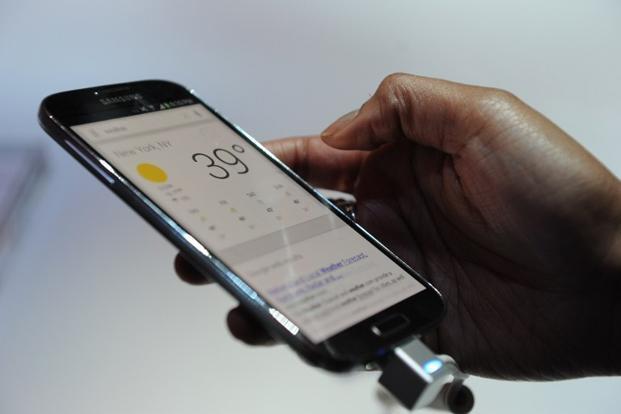Samsung Tests Superfast ‘5G’ Speeds at 1GBps
If you thought 4G LTE speeds weren’t good enough – here’s Samsung to your rescue. The biggest Android manufacturer in the world has just tested what it calls a “5G network” – reaching speeds of 1Gbps – more than 10 times the current 4G speeds.
Although there is no accepted definition of ‘5G’ networks as of yet (it can more accurately be called ‘mmWave Technology’), Samsung has still decided to go ahead with that name, and claims such speeds, by which users will be available to download entire movies within seconds, will be the norm by the year 2020. Interestingly, the European Commission is also targeting to establish 5G networks by the same year.
5G networks could allow a wide range of services such as 3D movies and games, real-time streaming of ultra high-definition content, and remote medical services – Samsung
Samsung tested this technology on the 28Ghz band, which is known for its instability and inability to support long distance communication. It is currently used by satellites – in vacuum, up in outer space – thus available here on the ground. Since 28Ghz radio has trouble penetrating through solid, the range continues to be an issue – Samsung says these speeds were accomplished only over a distance of just 1.2 miles. The test involved quite a sophisticated package of 64 dynamically adjusted antennas – another indicator of the impracticality of such a setup.
Our new adaptive array transceiver technology has proved itself as a successful solution. It transmits data in the millimetre-wave band at a frequency of 28GHz at a speed of up to 1.056Gbps to a distance of up to two kilometres. The adaptive array transceiver technology, using 64 antenna elements, can be a viable solution for overcoming the radio propagation loss at millimetre-wave bands, much higher than the conventional frequency bands ranging from several hundred MHz to several GHz.
Research into 5G services is being conducted in many parts of the world right now, especially in the UK. Britain’s University of Surrey is funding $54 million for a research centre involving companies like Huawei, Samsung, Fujitsu, and Telefonica.
Current generation 4G LTE networks offer speeds up to 75Mbps, and even though Samsung’s field test has demonstrated speeds many times that value, it is not the highest by any standards. Japan’s NTT DoCoMo reached similar speeds during another test in 2005, and earlier this year, achieved insane speeds of up to 10GBps on the 11 Ghz band.
It is not unusual Samsung is pushing for such high-speed networks – the company is a major wireless equipment manufacturer. South Korea, Samsung’s home company, itself has has 20 million 4G users.
On another note, do consumers really require such high speeds? Although high 4G speeds are obviously a welcome bonus, and 4G network adoption is on the rise, a survey by investment firm Piper Jaffray indicated 47% of US cellular consumers felt they don’t need 4G LTE.
While we definitely will be achieving higher speeds in the near future, it is inaccurate on Samsung’s part to use the term ‘5G’ to denote such standards. 5G has not been defined as a wireless standard by any international body as of yet, with no specifications for its requirements or speeds. This therefore, is nothing more than a marketing gimmick.

